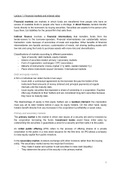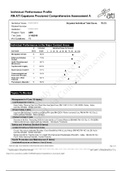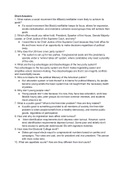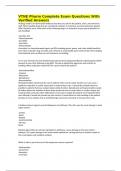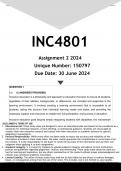Resume
Financial Markets & Institutions - Summary lectures and reading
- Cours
- Établissement
- Book
This document is a summary of the course Financial Markets & Institutions. The summary contains lectures notes and reading from both Mishkin's book and the academic papers.
[Montrer plus]
